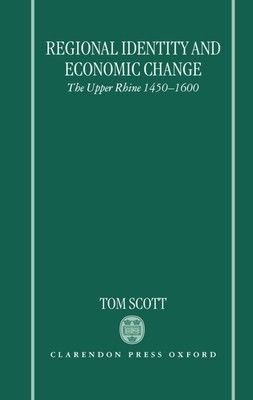
- We will send in 10–14 business days.
- Author: Tom Scott
- Publisher: Clarendon Press
- ISBN-10: 0198206445
- ISBN-13: 9780198206446
- Format: 14 x 21.6 x 2.5 cm, kieti viršeliai
- Language: English
- SAVE -10% with code: EXTRA
Reviews
Description
Europe lives in age of regionalism and regional identities which offer an alternative to the rigidities of organization by nation-state. Historically, such regions have been defined--if defined at all--in cultural, linguistic, ethnic, or political terms, with little emphasis on the economic factors of the period before industrialization. Tom Scott's intensive study of one region--the Upper Rhine between 1450 and 1600--redresses this imbalance. In this locality, divided between three countries and historically marginalized, Scott reveals the existence of a modern sense of regional identity working across national frontiers, and predicated on common economic interests.
EXTRA 10 % discount with code: EXTRA
The promotion ends in 23d.01:09:17
The discount code is valid when purchasing from 10 €. Discounts do not stack.
- Author: Tom Scott
- Publisher: Clarendon Press
- ISBN-10: 0198206445
- ISBN-13: 9780198206446
- Format: 14 x 21.6 x 2.5 cm, kieti viršeliai
- Language: English English
Europe lives in age of regionalism and regional identities which offer an alternative to the rigidities of organization by nation-state. Historically, such regions have been defined--if defined at all--in cultural, linguistic, ethnic, or political terms, with little emphasis on the economic factors of the period before industrialization. Tom Scott's intensive study of one region--the Upper Rhine between 1450 and 1600--redresses this imbalance. In this locality, divided between three countries and historically marginalized, Scott reveals the existence of a modern sense of regional identity working across national frontiers, and predicated on common economic interests.


Reviews